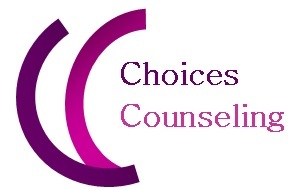For a very long time, I could not decipher between ‘codependency’ and love. I thought if we loved someone, we put that person’s needs before ours, and make their happiness our business.There is a fine line. It is true that love is unselfish. When we have a baby, or children, their needs do have to come before ours. We are not going to let our baby cry for hours from hunger in the middle of the night because we feel like sleeping when the baby would rather be awake and eat. We will drive our children around to activities when we are tired or would rather be doing something for our self. This is love, and the responsibility of a parent.
When we react in the same ways of putting the other first in our adult relationships, this is a red flag that we may be codependent. Codependency is a learned behavior. We watch the actions of our parents when we are children. If our mother or father had a problem with boundaries, was always the martyr, could never say ‘no’ to people, and had unhealthy ways to communicate, we learn these behaviors, and bring them onto our intimate relationships.
Children who grow up with emotionally unavailable parents also are at risk for being codependent. They often find themselves in relationships where their partner is emotionally unavailable, yet they stay and stay, hoping to change the person. Hoping that one day, things will be good. The subconscious hope is that the other person will see all the love we give and change. If we just hang in there, give our love, understanding, and support, we will finally get the love that we desired from our parents. This thinking is noble in one sense, and destructive if we do not have healthy boundaries. The worst part is when we do not realize what is going on and continue to live in a loveless partnership because we have never learned what a good partnership looks like. Codependent people do not believe that they are worthy of love, so they settle for less, often taking mental, emotional, physical, and even sexual abuse from their “partner.”
People who are codependent often look for things outside of themselves to feel better.They form relationships that are not healthy, looking to ‘fix’ the other person. A person with codependent tendencies may find themselves in relationships with a person that has addiction issues, thus making them the ultimate of emotionally unavailability. Their partner or they themselves may be workaholics, or develop some other compulsive behavior to fill them. This is easier in the short term than looking within and dealing with emotions.
If you are married and think that you may be in a codependent relationship, the first step is to stop looking at the other, and take a look at yourself.
If you honestly answer yes to any of these questions, you may be codependent.
- You tend to love people that you can pity and rescue.
- You feel responsible for the actions of others.
- You do more than your share in the relationship to keep the peace.
- You are afraid of being abandoned or alone.
- You feel responsible for your partner’s happiness.
- You need approval from others to gain your own self-worth.
- You have difficulty adjusting to change.
- You have difficulty making decisions and often doubt yourself.
Some healthy steps to healing your marriage from codependency are:
- Start being honest with yourself and your significant other. Doing things that we do not want to do not only wastes our time and energy, it also brings on resentments. Saying things that we do not mean only hurts us, because we then are living a lie. Be honest in your communication, and in expressing your needs and desires.
- Negative thinking. Catch yourself when you begin to think negatively. If you begin to think that you deserve to be treated badly, catch yourself and change your thoughts. Be positive and have higher expectations.
- Taking things personally. It takes a lot of work for a codependent not to take things personally, especially when in an intimate relationship. Accepting the other as they are without trying to fix or change them is the first step.
- Take breaks. There is nothing wrong with taking a break from your spouse. It is healthy to have friendships (of the same sex) outside of your marriage. Going out with friends brings us back to our center, reminding us of who we really are.
- Marriage counseling. Get into counseling with your partner. It takes two to make or break a partnership, we cannot fix a marriage on our own. A counselor serves as an unbiased third party. He/she can point out codependent tendencies and actions between the two of you that you may not be aware of. Feedback can provide a starting point and direction. Change cannot happen if we do not change.
- Boundaries. Those that struggle with codependency often have trouble with boundaries. We do not know where our needs begin or where the others end. We often thrive off of guilt, and feel bad when we do not put the other first. Learning where you stand in your own life, and having clear boundaries is not mean, it is healthy.
- Take care of yourself. Learn to be your own best friend. Depending on how we are raised, most people do not know how to love themselves. It is not selfish to take care of yourself first.


 RSS Feed
RSS Feed